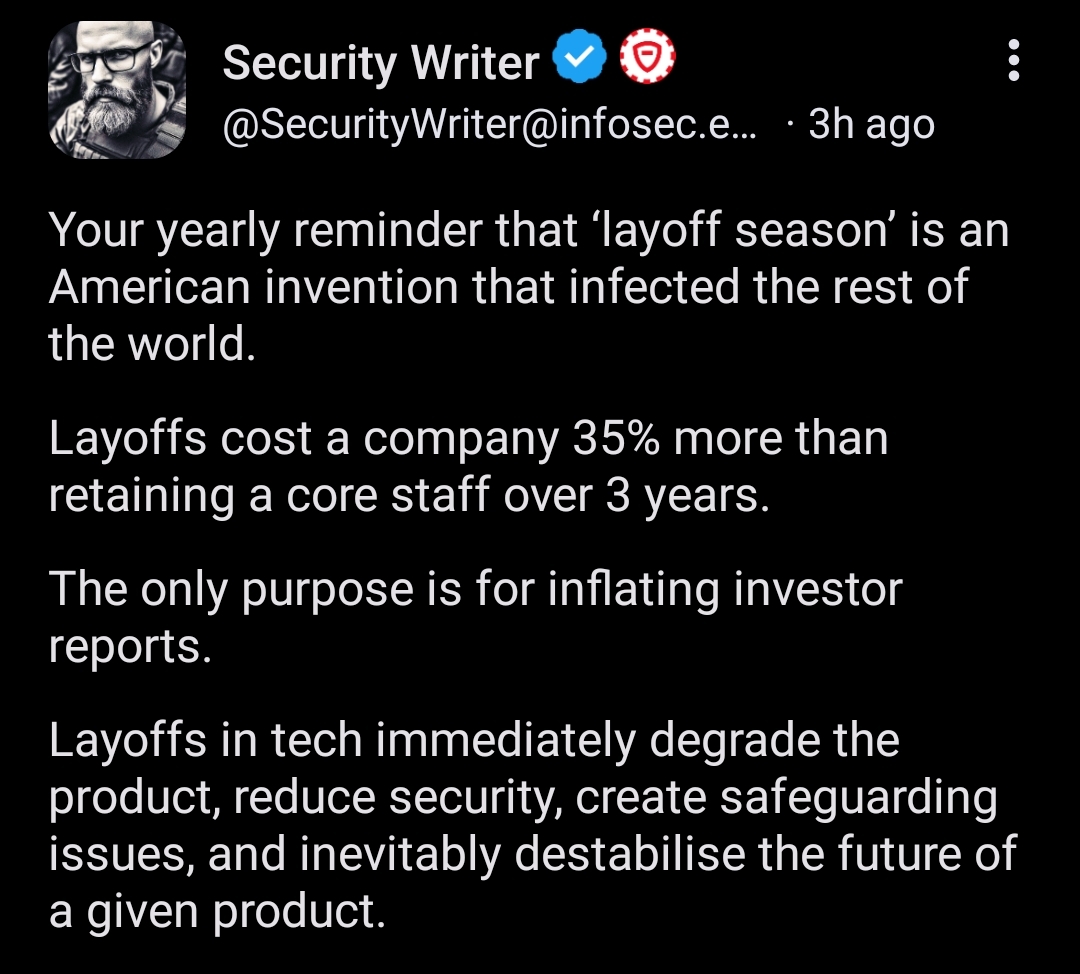this post was submitted on 14 Jan 2024
1096 points (98.7% liked)
People Twitter
5391 readers
1037 users here now
People tweeting stuff. We allow tweets from anyone.
RULES:
- Mark NSFW content.
- No doxxing people.
- Must be a tweet or similar
- No bullying or international politcs
- Be excellent to each other.
- Provide an archived link to the tweet (or similar) being shown if it's a major figure or a politician.
founded 2 years ago
MODERATORS
you are viewing a single comment's thread
view the rest of the comments
view the rest of the comments

I think thats a (shocker) overly simplistic approach to the dynamic. Layoffs are never a good look - and we’ve had an unprecedented boom time in tech for the last 20 years.
Companies were hiring just so competitors couldn’t. That doesn’t really happen anymore outside of AI.
We had what felt like make-work jobs, some nice guy or gal that no one wanted to fire who was “involved” but literally not responsible for anything.
Broad layoffs in the industry gave everyone cover to make unpopular decisions because everyone is doing it.
I don’t think - at least the ones I saw directly - it was the wrong choice.
Everything you described is still mismanagement.
Layoffs are considered a good look by big shareholders, though. Most of the time when the layoffs hit, the stock price goes up. Just look at Unity for a recent example. (I'm convinced they don't think it's good for the company and they just like seeing people suffer but i have no evidence for that.)
Layoffs aren’t a good look for a lot of shareholders unless the org is bloated. There are a variety of metrics to compare companies against each other in terms of head count efficiency.
Company values are basically just a view of future revenues minus expenses plus/minus sentiment. If you lower the company expenses, all else being equal, the share price should go up. Those shares are worth more.
But it also might say we’re not growing as fast as we thought we would or our business is challenged in other ways which will negatively affect sentiment.
Shareholders don’t like layoffs. They would much prefer you a) hired the right people the first time, b) hired the right number of people, or failing that c) grew into the number of people that you hired.
No one loves a declining business, and many businesses doing layoffs are - either outright declining or declining growth.